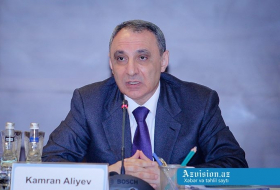The gunman, who was killed by police minutes after opening fire on crowded bars, had been released from jail less than a year ago.
An elderly man and woman, a young passer-by and a waitress were killed, and 22 people including a policeman were wounded, Interior Minister Karl Nehammer told a news conference. Vienna’s mayor said three people were still in critical condition.
In a televised address, Chancellor Sebastian Kurz told Austrians: “This is not a conflict between Christians and Muslims or between Austrians and migrants. No, this is a fight between the many people who believe in peace and the few (who oppose it). It is a fight between civilisation and barbarism.”
The attack followed shortly after deadly assaults by lone Islamist attackers in Nice and Paris, where some Muslims have been angered by publication of satirical caricatures of the Prophet Mohammed.
In Paris, French President Emmanuel Macron went to the Austrian Embassy to write a message of condolence in German that read: “In joy and in sorrow, we will remain united.”
Both he and German Chancellor Angela Merkel spoke to Kurz to offer their support.
The centre of Vienna was largely deserted on Tuesday, with many shops closed, though Austrian authorities played down earlier suggestions that other shooters might still be on the loose.
FREED FROM JAIL EARLY
Nehammer said footage of the incident filmed on numerous mobile phones showed no evidence of a second gunman, although the possibility had not been completely ruled out.
A police spokesman said at least 1,000 officers had been involved in the search for accomplices. The army was guarding sensitive sites to free up police for the operation.
The attacker, an Austrian-born son of immigrants from North Macedonia, was wearing an explosive belt that turned out to be fake. Vienna’s police chief said he was killed nine minutes after starting his rampage.
He was identified as Kujtim Fejzulai, a dual citizen of Austria and North Macedonia, who had been sentenced to 22 months in jail in April last year for attempting to travel to Syria to join Islamic State, but released early, in December.
Nehammer said Fejzulai had attended a de-radicalisation programme, but that “despite all the outward signs that he was integrating into society, the assailant apparently did exactly the opposite”.
Fejzulai had posted a photo on a social media account before the attack, showing himself with weapons, Nehammer said. There was no immediate claim of responsibility for the attack.
Officials said the perpetrator had been armed with an automatic rifle, a hand-gun and a machete.
Witnesses described crowds being fired on in bars as people enjoyed a last evening out before the start of a nationwide coronavirus curfew.
The government announced three days of national mourning, and held a minute’s silence at noon.
GRISLY VIDEOS
A witness to the attack, Vienna rabbi Schlomo Hofmeister, said he had seen one shooter but could not be certain there were no others.
“I saw one person. Later, I saw videos and I’m not sure it was the same one. I find it very difficult to identify someone in a fraction of a second,” he told Reuters television.
Videos posted on social media showed a gunman running down a cobbled street shooting and yelling. One showed a man gunning down a person outside a cocktail bar on the street where the synagogue is located, then returning to shoot the same person again.
Police sealed off much of the historic city-centre overnight, urging the public to shelter where they were.
Many sought refuge in bars and hotels, while public transport in the area was shut down until morning.
The shooting took place as the Vienna State Opera was holding its final concert before the lockdown. Musicians played on, despite news of the violence outside: “If people weren’t allowed to leave anyway, why should we stop early?” a spokeswoman said.
After the concert, with the doors still locked, four members of the orchestra came back into the pit to play a Haydn string quartet for those who were still in their seats.
Vienna had until now been spared the kind of deadly Islamist militant attacks that have struck Paris, London, Berlin and Brussels, among others, in recent years.
Condolences poured in from leaders around the world. U.S. President Donald Trump tweeted: “These evil attacks against innocent people must stop. The U.S. stands with Austria, France, and all of Europe in the fight against terrorists, including radical Islamic terrorists.”
Democratic presidential candidate Joe Biden condemned what he called a “horrific terrorist attack”, adding: “We must all stand united against hate and violence.”
















































